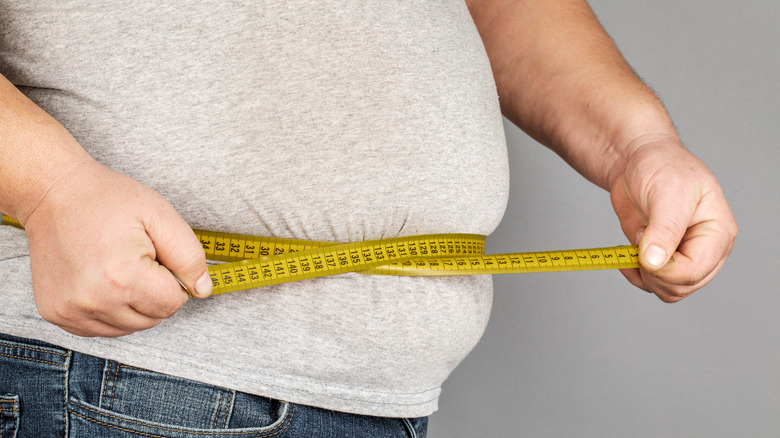Can You Lose Weight From Diet Alone?
Most people are aware that diet plays a huge role in weight loss, but can it play the only role? Although most weight loss protocols include a healthy dose of exercise along with dietary changes, Healthline points out that losing weight generally boils down to one key equation: number of calories consumed vs. number of calories expended. This means that as long as you take in fewer calories than your body uses throughout the course of the day, weight loss should occur.
Since the number of calories we consume is directly related to diet, it makes sense that simply consuming fewer calories is enough to lead to weight loss without any additional changes. Nutritional biochemist Shawn M. Talbott cites a review to support the notion that weight loss is mostly tied to diet, per HuffPost. "An analysis of more than 700 weight loss studies found that people see the biggest short-term results when they eat smart," Talbott stated.
"On average, people who dieted without exercising for 15 weeks lost 23 pounds; the exercisers lost only six over about 21 weeks," Talbott added. He attributes these findings to the fact that it is easier to eat fewer calories than burn them off after the fact. Talbott recommends that dieters shoot for eating 10 calories per pound of body weight per day "to lose weight no matter how much you exercise." It is clear that you can lose weight with dietary changes alone, but should you?
Exercise can help lose weight in a healthy way
You will definitely see the scales shift if you restrict calories and focus on filling your plate with nutrient-dense foods, but professor of physical education and exercise science Michele Olson warns against not making exercise a part of your weight-loss approach, per HuffPost. "Yes, you can lose weight with diet alone, but exercise is an important component," Olson explains, adding, "Without it, only a portion of your weight loss is from fat — you're also stripping away muscle and bone density." However, the stripping of these important tissues doesn't occur with regular exercise because working out builds muscle and bone density.
The results of a 2017 clinical trial supports Olson's assertation. Researchers looked at the effects of cardio and resistance training on the body composition of 141 adults actively trying to lose weight. They found that those who didn't incorporate exercise into their weight-loss regimen or only engaged in cardio exercises did lose weight but also lost more muscle and bone mass than those who focused on resistance training exercises. This trial shows that the type of exercise is also important when it comes to losing weight. You should go for strength training exercises over pure cardio to optimize fat loss.
In addition to assisting in weight loss, physical activity is crucial for keeping the weight off, per the CDC. Once you've reached your ideal weight, you should shoot for 150 minutes of moderate-intensity aerobic activity per week to maintain it.


